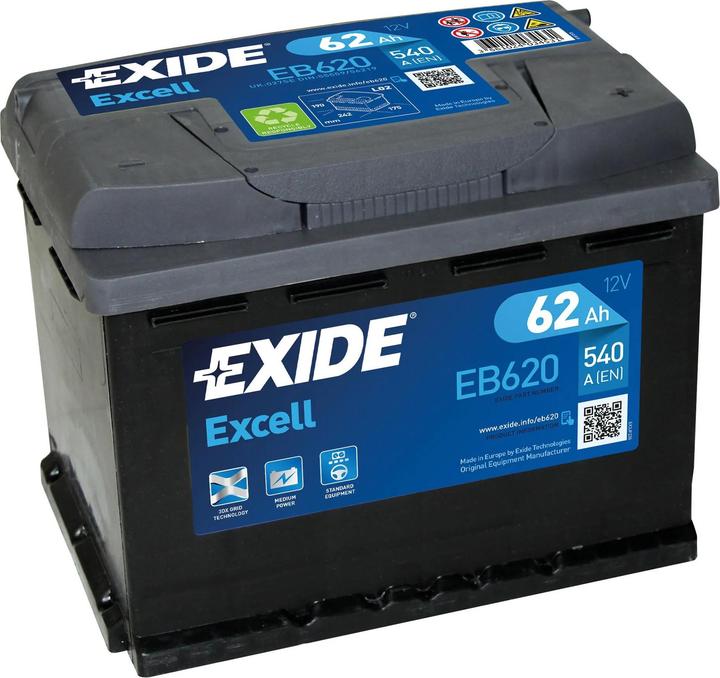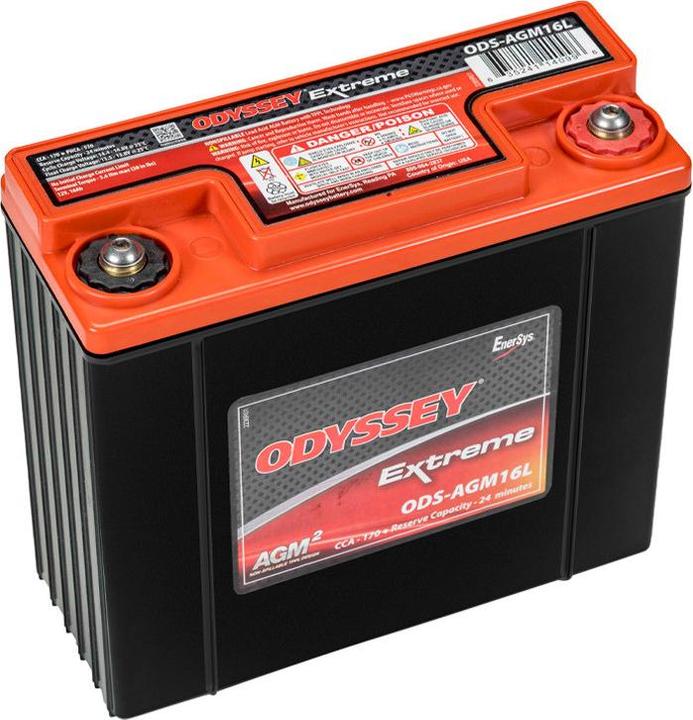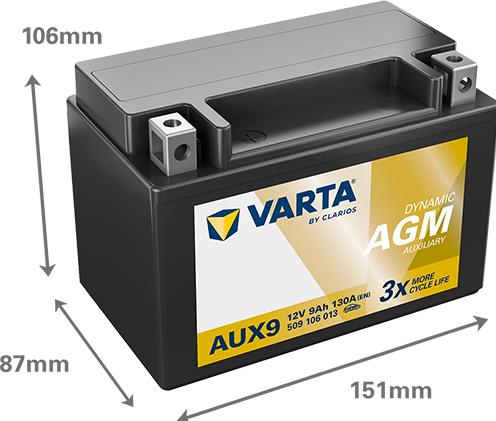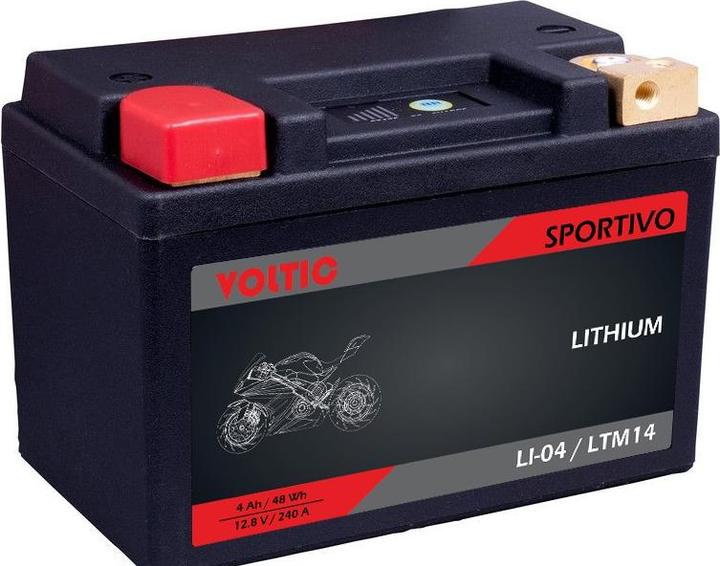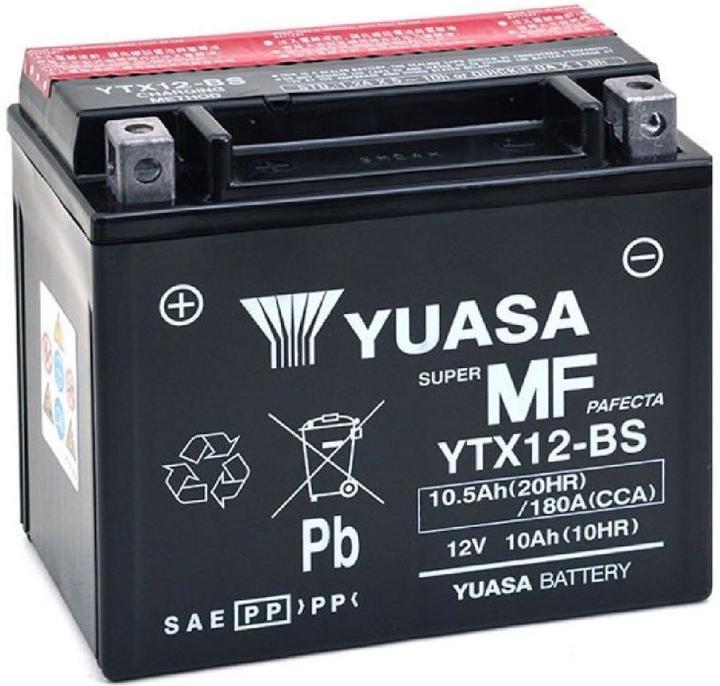
Too Many Car Batteries? Here's How to Choose the Right One
Discover the top five factors to consider when selecting the perfect car battery for your vehicle.
Last updated 10 hours ago. Automatically generated content.
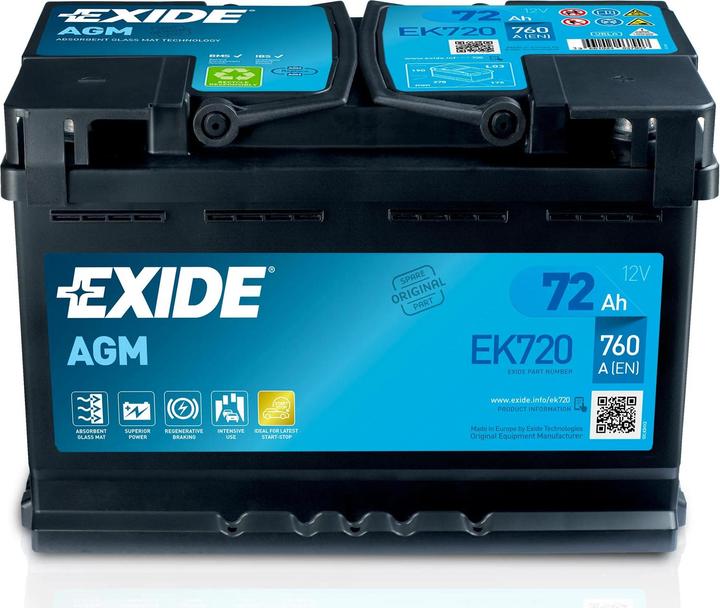

Select options and limit the number of products
The capacity of a car battery, measured in amp-hours (Ah), determines how long it can supply power to the vehicle's electrical systems before needing a recharge. Selecting the appropriate capacity is crucial for ensuring reliable performance, especially in vehicles with high energy demands or frequent use.
Popular options
Up to 30 Ah
Typical price
58.– to 130.–Suitable for small vehicles with minimal electrical needs, such as motorcycles or compact cars.
Offers sufficient power for basic applications, ensuring functionality without overpaying for unnecessary capacity.
Bestseller
31 - 60 Ah
Typical price
88.– to 180.–Designed for standard cars with moderate electrical requirements.
Provides a balance of power and cost, ideal for everyday use in most passenger vehicles.
Bestseller
61 - 100 Ah
Typical price
120.– to 200.–Built for larger vehicles or those with extensive electrical systems, such as SUVs or trucks.
Ensures robust performance in demanding conditions, supporting heavy-duty applications and extended usage.
Bestseller
Cold start current (EN) refers to the battery's ability to provide sufficient power in cold weather conditions, crucial for reliable engine startup. Understanding cold start current is important for selecting a battery that ensures dependable performance, especially in colder climates.
Popular options
Up to 300 A
Typical price
65.– to 130.–Suitable for small vehicles with lower power requirements.
Best for moderate climates where extreme cold is not a concern.
Bestseller
301 - 600 A
Typical price
93.– to 220.–Provides a balanced power output suitable for most standard vehicles.
Ideal for regions with mild to moderate winter conditions, ensuring reliable cold starts.
Bestseller
601 - 900 A
Typical price
130.– to 200.–Delivers high power output for large vehicles or those with higher energy demands.
Recommended for areas with harsh winters, offering optimal performance in very low temperatures.
Bestseller
Battery type determines the role and functionality of the battery within a vehicle, influencing how it supplies power to start the engine or support electrical systems. Understanding the different battery types is crucial for ensuring compatibility with your car's specific requirements and optimizing performance and reliability.
Popular options (you can select more than one)
Starter battery
Typical price
79.– to 180.–Designed to deliver a high burst of power to start the vehicle's engine.
Ideal for vehicles with standard electrical systems, offering reliable engine startup even in cold conditions.
Bestseller
Supply battery
Typical price
170.– to 500.–Provides continuous power to support the vehicle's electrical systems when the engine is off.
Recommended for cars with advanced features like infotainment systems and auxiliary devices, ensuring uninterrupted power supply.
Bestseller
Support battery
Typical price
75.– to 160.–Acts as a secondary battery to assist the main battery during high-demand situations.
Great for hybrid or electric vehicles, enhancing energy efficiency and overall system performance.
Bestseller
Battery technology determines how a car battery stores and releases energy, directly impacting its performance, lifespan, and maintenance needs. Choosing the right technology affects reliability and efficiency, which are crucial for ensuring your vehicle starts and operates smoothly under various conditions.
Popular options (you can select more than one)
AGM
Typical price
65.– to 200.–Absorbent Glass Mat technology uses fiberglass mats to hold the electrolyte, offering better cyclic performance and vibration resistance.
AGM batteries are maintenance-free and suitable for vehicles with high electrical demands, ensuring consistent power delivery.
Bestseller
Lead-Acid WET
Typical price
77.– to 130.–Traditional flooded design with liquid electrolyte, requiring regular maintenance to check fluid levels.
Lead-Acid WET batteries are cost-effective and provide reliable performance for standard vehicles with moderate power needs.
Bestseller
Lithium
Typical price
120.– to 380.–Lithium technology offers high energy density and lighter weight compared to other battery types.
Lithium batteries are ideal for electric vehicles and high-performance applications, providing long lifespan and quick charging capabilities.
Bestseller
The vehicle type is crucial for selecting the appropriate car battery as different vehicles have varying power requirements and physical space constraints. Choosing the correct battery ensures optimal performance, longevity, and reliability, tailored to the specific needs of your vehicle type.
Popular options (you can select more than one)
Auto
Typical price
100.– to 190.–Designed to fit standard passenger cars, offering a balance of power and size.
Ideal for everyday vehicles, providing reliable starting power and consistent performance for daily commutes and errands.
Bestseller
Motorbike
Typical price
62.– to 140.–Compact and lightweight, suitable for two-wheelers with limited space and power demands.
Perfect for motorbikes, ensuring quick starts and efficient power delivery for a smooth ride.
Bestseller
Lorry
Typical price
190.– to 440.–Heavy-duty batteries built to supply high power for larger, commercial vehicles.
Essential for lorries, providing robust performance and reliability for long hauls and demanding transportation tasks.
Bestseller
Boat
Typical price
170.– to 720.–Marine batteries designed to resist corrosion and withstand the rigors of watercraft use.
Optimal for boats, ensuring dependable power for starting and running onboard systems in aquatic environments.
Bestseller

